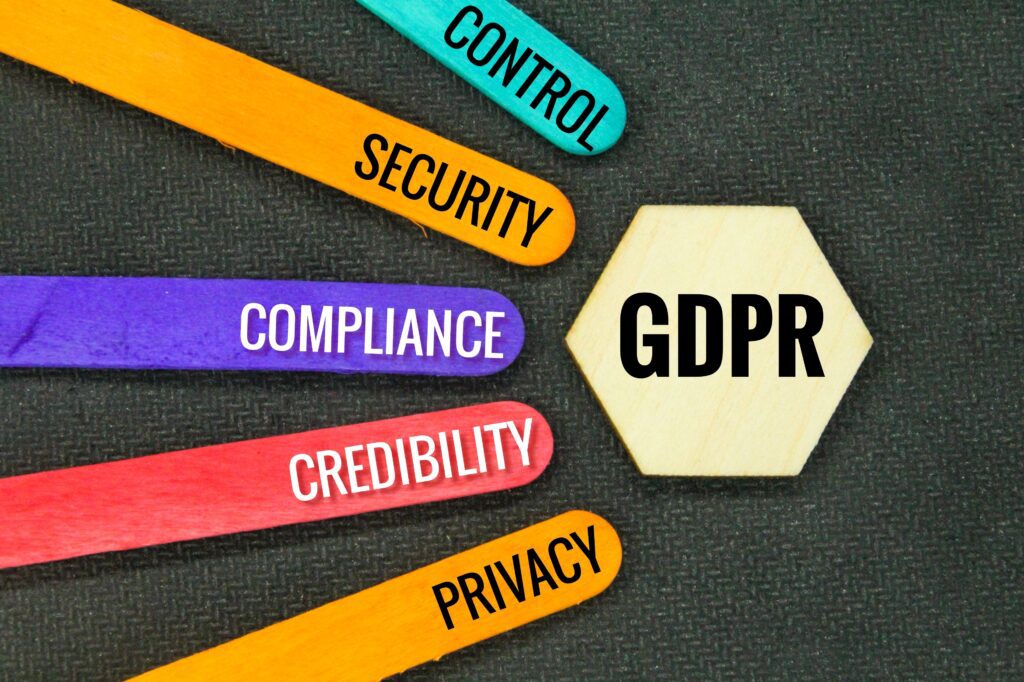In today’s data-driven economy, data privacy compliance UAE is not just a legal necessity—it’s a business imperative. As organizations in the Emirates collect, process, and store increasing volumes of personal data, regulatory expectations are growing in parallel. Whether you’re a fintech startup in Dubai or a multinational operating across the GCC, achieving data privacy compliance UAE can determine your license to operate.
With the introduction of updated UAE data protection laws 2025, alignment with global benchmarks like GDPR compliance UAE, and sector-specific UAE data security regulations, businesses need a comprehensive strategy for safeguarding sensitive information. This blog provides a technical, strategic, and actionable overview of how to build enterprise-grade data privacy compliance UAE frameworks that ensure both trust and regulatory alignment.
Understanding UAE Data Privacy Compliance in 2025
The UAE’s Federal Decree Law No. 45 of 2021 on the Protection of Personal Data was a foundational step. But in 2025, the evolution of UAE data protection laws has introduced stricter standards, closer enforcement, and new breach reporting obligations.
Key Components of UAE Data Protection Laws 2025:
- Consent-Based Processing: Explicit consent is required for data collection unless exceptions apply.
- Cross-Border Data Transfers: Restricted unless the receiving country has adequate data protection laws or contractual safeguards are in place.
- Data Subject Rights: Access, correction, deletion, and portability are now enforceable.
- Breach Notification Mandates: Data breaches must be reported to authorities within 72 hours.
- DPO Requirements: Certain sectors are required to appoint a Data Protection Officer.
These align the UAE more closely with GDPR compliance UAE, while maintaining local business priorities.
How Data Privacy Compliance Is Enforced in the UAE
1. Regulatory Authorities
- UAE Data Office: National authority overseeing compliance and issuing sectoral guidance.
- Telecommunications and Digital Government Regulatory Authority (TDRA): Plays a key role in digital privacy.
- Sectoral Regulators: E.g., Dubai Healthcare City Authority (DHCA), Central Bank of UAE for finance.
2. Compliance Audits & Fines
- Non-compliance can result in warnings, mandatory remediation, or significant administrative fines.
- Under the new law, fines can reach AED 5 million for severe violations.

Building a Technical Framework for UAE Data Privacy Compliance
1. Data Inventory and Mapping
Identify:
- Personal data collected
- Processing purposes
- Storage systems and third-party transfers
Use tools like OneTrust, BigID, or Vera for automation.
2. Privacy by Design and Default
Incorporate privacy controls from the start:
- Role-based access controls (RBAC)
- Data minimization policies
- Consent-tracking workflows
3. Cross-Border Data Transfer Compliance
- Evaluate third-party vendors and cloud services.
- Use Standard Contractual Clauses (SCCs) or Binding Corporate Rules (BCRs).
4. Security Controls Aligned with UAE Data Security Regulations
- Encryption (AES-256 for storage, TLS 1.2+ for transmission)
- Regular vulnerability assessments
- Zero Trust security frameworks
Example: A Dubai-based SaaS provider used Vanta and AWS KMS to implement end-to-end encryption and automated compliance monitoring.
Tools and Platforms Supporting Data Privacy Compliance in UAE
Popular tools adopted by UAE enterprises:
- TrustArc: Compliance management platform with GDPR and UAE localization.
- Securiti.ai: AI-powered privacyOps and DSAR automation.
- Collibra: Data governance and lineage.
- Vanta / Drata: Continuous compliance platforms for security audits.
Cloud Providers Supporting Compliance:
- Microsoft Azure UAE Regions (Dubai & Abu Dhabi)
- AWS Middle East (Bahrain)
- Oracle Cloud UAE with in-country data residency guarantees
Common Mistakes in Achieving UAE Data Privacy Compliance
- Assuming GDPR Compliance = UAE Compliance
- The laws are similar but not identical. UAE-specific consent and localization rules differ.
- The laws are similar but not identical. UAE-specific consent and localization rules differ.
- Overlooking Third-Party Risks
- Vendors handling data must also be compliant; otherwise, you’re liable.
- Vendors handling data must also be compliant; otherwise, you’re liable.
- No Data Breach Plan
- Failing to implement breach detection and escalation workflows can increase legal exposure.
- Failing to implement breach detection and escalation workflows can increase legal exposure.
- Static Policies
- Policies must evolve as laws and technologies change.
- Policies must evolve as laws and technologies change.
- Neglecting Employee Training
- Human error remains the leading cause of data breaches.
- Human error remains the leading cause of data breaches.

Best Practices and 2025 Trends for Data Privacy Compliance UAE
Best Practices
- Appoint a DPO or Privacy Champion: Especially for regulated sectors.
- Conduct Regular DPIAs: Identify risks for new projects, systems, or third-party vendors.
- Implement DSAR Workflows: Automate data subject access and deletion requests.
- Maintain Audit Trails: Log all data access and processing activities.
- Run Annual Penetration Tests: As required under many UAE data security frameworks.
Emerging Trends in UAE Data Compliance
- AI in Compliance Monitoring
- AI tools predict compliance risks and automate remediations.
- AI tools predict compliance risks and automate remediations.
- Industry-Specific Frameworks
- Finance, healthcare, and telecom sectors see increased sectoral regulation.
- Finance, healthcare, and telecom sectors see increased sectoral regulation.
- Real-Time Consent Management
- Platforms enabling dynamic consent (for cookies, apps, forms).
- Platforms enabling dynamic consent (for cookies, apps, forms).
- Data Localization Push
- More sectors being mandated to store data within UAE borders.
- More sectors being mandated to store data within UAE borders.
- Privacy-as-a-Service
- Managed compliance offerings bundled with cloud and IT services.
- Managed compliance offerings bundled with cloud and IT services.
Gartner forecasts that by 2026, 60% of UAE organizations will use centralized platforms to automate data privacy workflows.
Why Supertron Infotech Is Your UAE Privacy Compliance Partner
Supertron Infotech offers end-to-end services across:
- GDPR Compliance UAE and UAE Law Alignment
- Privacy Gap Analysis & Risk Assessment
- DSAR and Consent Management System Setup
- Vendor Assessment and Contract Review
- DPO-as-a-Service for UAE Businesses
“We help UAE enterprises turn privacy compliance into a trust-building advantage, not just a legal checkbox,” says Supertron’s Chief Compliance Officer.
Conclusion: Build Trust with UAE-Ready Data Privacy Compliance
With evolving regulations like UAE data protection laws 2025, achieving full data privacy compliance UAE requires a proactive, ongoing approach. From GDPR compliance UAE alignment to technical controls under UAE data security regulations, every business must embed privacy into its DNA. The cost of inaction isn’t just legal risk—it’s lost customer trust.
Want to accelerate your compliance journey? Contact Supertron Infotech for a privacy compliance blueprint tailored to UAE and global requirements.
FAQs
Quick answers to common questions related to this topic.
What are the key components of UAE data privacy laws in 2026?
The UAE data protection laws in 2026 emphasize consent-based data processing, cross-border transfer restrictions, enforceable data subject rights, mandatory breach notifications within 72 hours, and DPO (Data Protection Officer) appointments in specific sectors.
How do GDPR compliance and UAE privacy regulations differ?
While GDPR and UAE laws share similarities, UAE regulations include specific localization requirements, consent nuances, and sectoral mandates that differ from EU frameworks. Full GDPR compliance does not automatically ensure UAE compliance.
What tools can businesses use to manage data privacy compliance in the UAE?
Popular tools include TrustArc for compliance management, Securiti.ai for privacyOps, Collibra for data governance, and Vanta or Drata for continuous compliance. UAE-based cloud services from AWS, Azure, and Oracle also support data residency needs.
What are common mistakes businesses make in UAE data privacy compliance?
Common errors include assuming GDPR covers UAE law, ignoring third-party vendor risks, lacking a data breach plan, failing to update policies, and not training employees properly on data protection.
Why is Supertron Infotech a trusted partner for data privacy compliance in the UAE?
Supertron Infotech provides end-to-end services, including privacy audits, GDPR-UAE alignment, DSAR setup, vendor assessments, and DPO-as-a-service—turning compliance into a competitive trust-building advantage.




